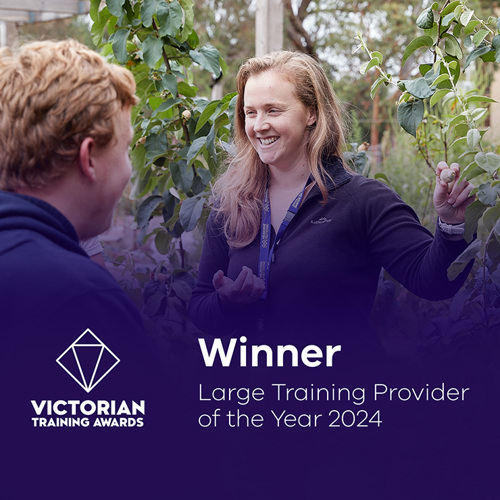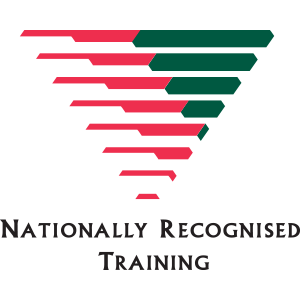Advanced Diploma of Engineering Technology Civil Engineering Design
Overview
2 years full time / available part time
1 year
February
February
Design a future for yourself - and the world
This course offers the perfect introduction into the world of Infrastructure and Built Environment. Students learn the core concepts of civil engineering construction principles, processes and materials, advanced technology applications, structural mechanics, design and documentation of reinforced concrete and steel structures, documentation of urban roads, land surveying, 2D/3D/BIM software.
Gain essential engineering skills
In the course of your studies, you’ll learn from and work with senior civil and structural engineers involved in the design and construction of buildings, bridges, airports, dams and reticulation systems.
The Engineering Technology Programs focus on developing your employability skills and enabling you to be Industry job-ready.
Career Pathways
Where will the Advanced Diploma of Engineering Technology 22479VIC (Civil Engineering Design) take me?
Advanced Diploma of Engineering Technology is a widely-recognised qualification within the engineering sector. It’s a great entry point to the industry or a foundation for further studies. You’ll graduate ready to work as a computer aided design (CAD) draftsperson, engineering assistant, assistant project manager or construction engineer, construction materials lab technician or automated systems worker, depending on your stream. You may work in a range of industries, including building construction, steel fabrication, machinery handling or food and beverage production.
- Reinforcement Scheduling
- Contracts Administrator
- Construction Materials Laboratory Technician
- Technical officer with roads / water authority or local council
- Estimating & Project Costing
- Assistant Project Manager / Construction Engineer
- Computer Aided Design (CAD) Draftsperson
Study Pathways
Upon successful completion of the Advanced Diploma, you will receive 12 subjects/1.5 years credit into our Bachelor of Engineering Technology (Civil).

Course Details
How you will study
Each course has a dedicated learning method that is designed to let you thrive in your studies.
On-campus
Interactive learning in a face-to-face environment. Classes will be held at a Melbourne Polytechnic campus or partner institute. Visit the How You'll Study page for more information.
Assessment Methods
- written activities/assignments/reports
- oral questioning/demonstration/observation
- test/quiz
- portfolio presentation
Units of Study
The hours displayed are nominal, actual classroom hours delivered may differ. Please contact us for the latest student contact hours information.
| Code | Subject | Elective | Hours |
| CPPBDN4004 | Set up BIM-capable software and files for building design drafting projects | Elective | 40 |
| CPPBDN5013A | Develop and collaborate on building information models for small-scale building design | Elective | 100 |
| MEM16006A | Organise and communicate information | Core | 20 |
| MEM16008A | Interact with computing technology | Core | 20 |
| MEM22001A | Perform engineering activities | Core | 60 |
| MEM22002A | Manage self in an engineering environment | Core | 40 |
| MEM22013A | Coordinate engineering projects (Capstone) | Core | 80 |
| MEM23004A | Apply technical mathematics | Core | 80 |
| MEM23007A | Apply calculus to engineering tasks | Core | 80 |
| MEM23109A | Apply engineering mechanics principles | Core | 60 |
| MEM30007A | Select common engineering materials | Core | 40 |
| MEM30012A | Apply mathematical techniques in a manufacturing, engineering or related environment | Core | 40 |
| MEM30031A | Operate computer aided design (CAD) system to produce basic drawing elements | Core | 40 |
| MEM30033A | Use computer-operated design (CAD) to create and display 3-D models | Core | 40 |
| VU22330 | Select and interpret drawings and prepare three dimensional (3D) sketches and drawings | Core | 20 |
| VU22451 | Investigate advanced technology applications in the manufacturing industry and related | Core | 60 |
| VU22452 | Use communication network concepts and practices in manufacturing and engineering | Core | 40 |
| VU22474 | Apply principles of strength of materials to engineering problems | Core | 60 |
| VU22475 | Apply scientific principles to engineering problems | Core | 60 |
| VU22484 | Implement site investigation procedures | Elective | 60 |
| VU22485 | Apply construction principles to civil engineering works | Elective | 60 |
| VU22486 | Apply principles of materials testing to civil engineering applications | Elective | 60 |
| VU22487 | Apply surveying for civil engineering projects | Elective | 40 |
| VU22488 | Perform measurements and layout tasks on construction site | Elective | 40 |
| VU22489 | Produce reinforced concrete drawings | Elective | 40 |
| VU22490 | Produce structural steel drawings | Elective | 40 |
| VU22493 | Produce drawings to enable urban road construction | Elective | 40 |
| VU22535 | Apply advanced static principles to engineering problems | Core | 60 |
| VU22545 | Apply environmental solutions to engineering projects | Elective | 40 |
| VU22546 | Apply principles of mechanics to engineering structures | Elective | 40 |
| VU22550 | Produce an engineering design for a reinforced concrete structure | Elective | 40 |
| VU22551 | Produce an engineering design for a steel structure | Elective | 60 |
| VU22552 | Produce advanced drawings for reinforced concrete structure | Elective | 40 |
| VU22553 | Produce advanced engineering drawings for a reinforced concrete structure | Elective | 40 |
| VU22554 | Apply surveying computations to engineering projects | Elective | 40 |
| VU22562 | Apply principles of soil mechanics to civil engineering | Elective | 60 |
Attend an Information Session
Fees & Costs
| Government subsidised fee | Non-subsidised fee | |
|---|---|---|
| Tuition fee | $15650 | $31750 |
| Maximum annual amenities | $250 | $250 |
| Total payable | $15900 | $32000 |
| Per year | $17200 |
| Per semester | $8600 |
The student tuition fees as published are subject to change given individual circumstances at enrolment.
Displayed course fees are indicative only. There are many variables that impact the total amount of your full course costs including qualification for government subsidies, concessions or recognition of prior learning. Tuition fees do not include the cost of student amenities or material costs.
This training is delivered with Victorian and Commonwealth Government funding. Contact us to find out if you’re eligible for a Government subsidy.
Melbourne Polytechnic offers a range of payment options to help you pay your tuition fees, so you can get on with your studies.
Fees displayed are effective for new applications received on or after 1st of November. Tuition fees do not include textbooks, course materials or overseas student health insurance and visa fees.
After initial deposit, international students are able to pay tuition fees in installments, four times per year.
For more detailed information please read the International Student Fees.
Materials
Lists of required materials, books and timetables will be provided at course induction or class enrolment by the teaching department.Fees explained
The fees for those ineligible for a government-funded enrolment.
The cost of tuition for those eligible for government funding.
Additional expenses
The Student Services and Amenities Fee is charged at forty cents (40 cents) per student contact hour and is capped over a twelve (12) month period, effective from the enrolment date, to:
- $250 for full fee-paying students; and
- $175 for concession-paying students studying Certificate I, II, III, or IV.
Amenities fees are used to improve non-academic services including libraries, counselling services, student support, and recreational activities.
Civil Engineering Courses at Melbourne Polytechnic
Requirements
- successfully completion of Year 12 VCE studies, or equivalent, including units in English and Mathematics
- mature age students with relevant experience may also apply
- applicants without the necessary study prerequisite may be required to undertake additional bridging units of study in mathematics and communication
- All applicants must have successfully completed the Diploma of Engineering Technology (22478VIC)
Academic: Australian Year 12 equivalency or higher, to include studies in mathematics or physics
English:Academic IELTS 6.0 overall, Pearson PTE Academic 50 overall, or Melbourne Polytechnic recognised equivalency.
Note: Diploma of Engineering Technology is a pre-requisite for international students
Next Steps
We're really excited for you to join the Melbourne Polytechnic community and we look forward to supporting you on your education journey.
The first step to enrolling is completing the application short form from the Apply Now page.
You'll then receive a link to complete a few more personal details.
It is a mandatory government requirement for all prospective students to complete an online literacy and numeracy assessment.
Once you are ready to enrol, you will be invited to attend our Skills and Job Centre, or come to campus to complete your enrolment in person.
For Diplomas and Advanced Diplomas, you may be eligible for a VET Student Loan. Read more about them here.
If you need assistance with your application and the next steps, you can contact one of our Education and Course Advisors on 1300 635 276 or follow a step-by-step guide to enrolling for vocational education local students.
When we receive your application, the International Office will be in contact with you shortly to discuss your application and provide you additional instructions.
If you'd like to speak to one of our International Office staff directly, call 1300 635 276

We're Victoria's Large Training Provider of the Year
Study with Melbourne Polytechnic, proud winner of Victoria’s 2024 Large Training Provider of the Year! Recognised for our innovative programs, industry partnerships and commitment to student success, we’re here to help you build the skills for a thriving future.
Recognising Organisations

Nationally Recognised Training This course is government accredited and has national recognition.
Local student means; you are an Australian citizen or permanent resident, a New Zealand citizen or a permanent humanitarian visa holder.